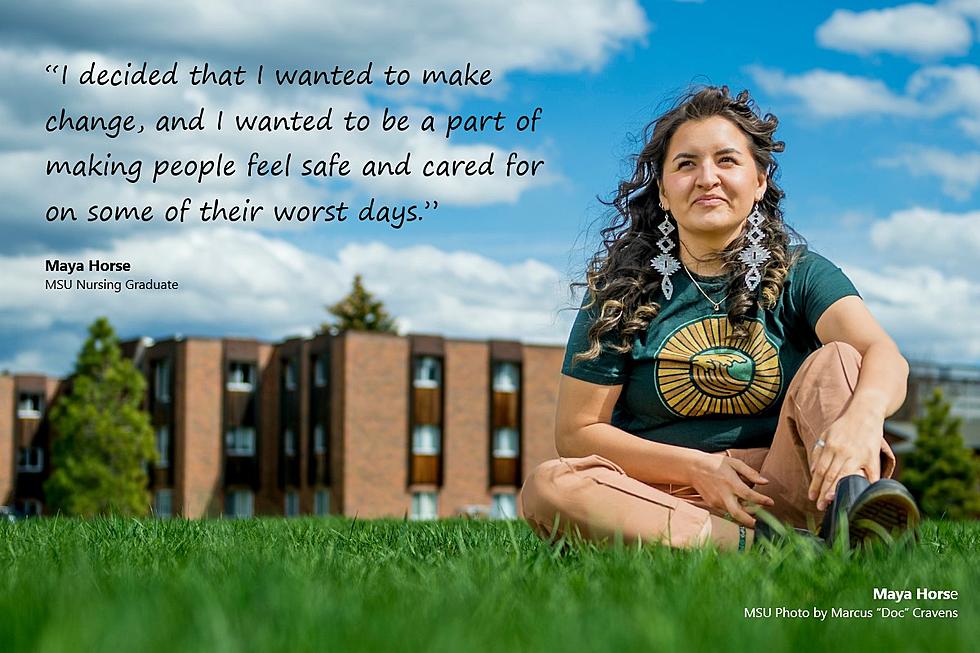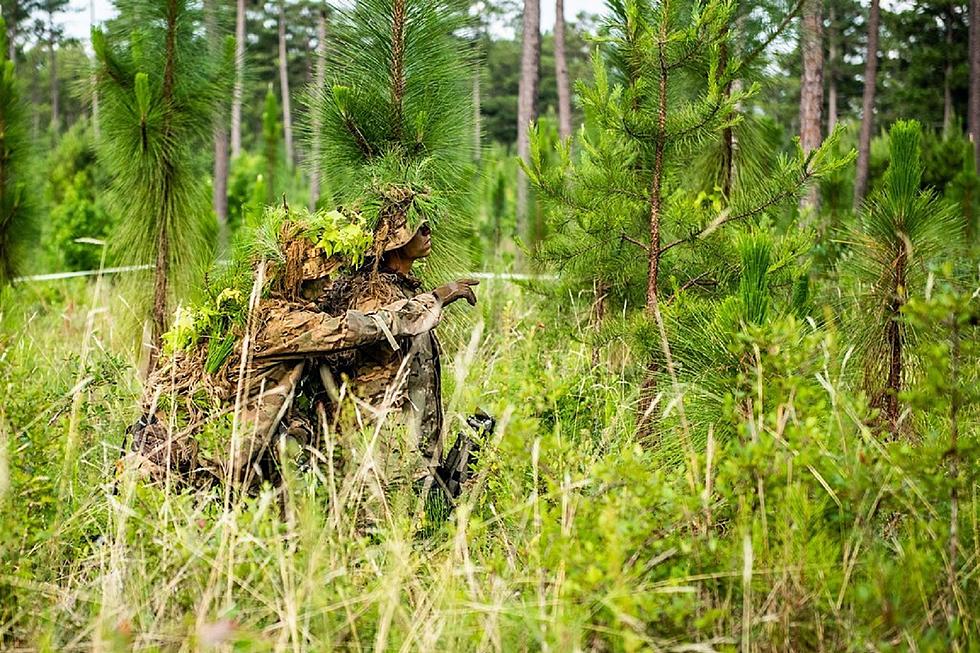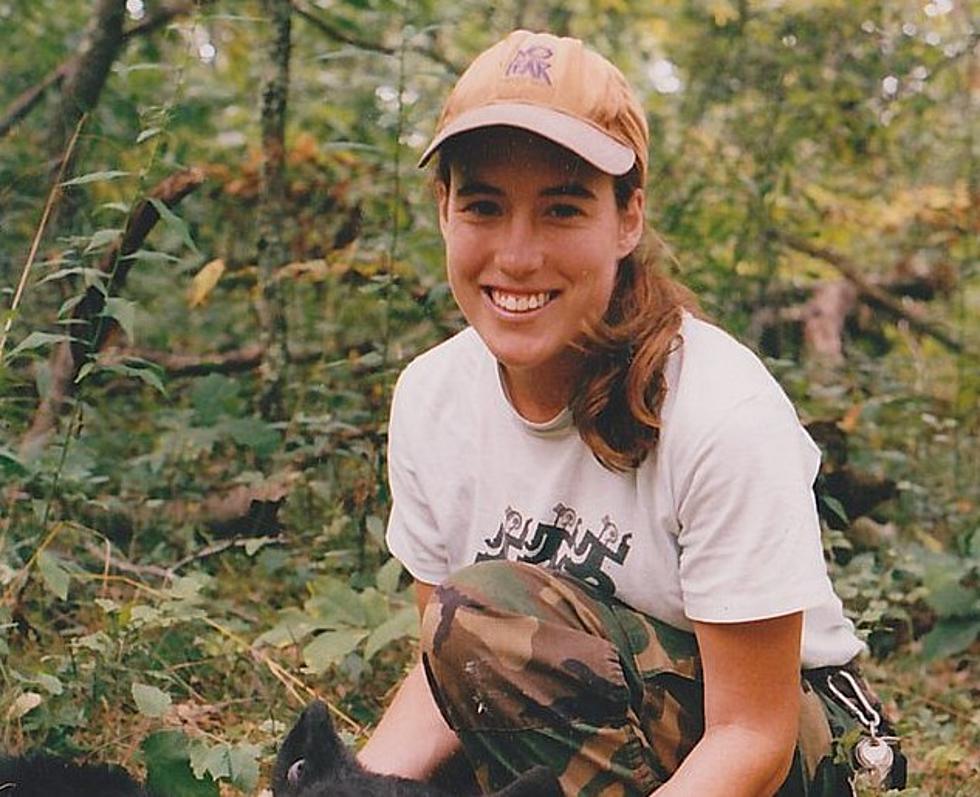
MSU Nursing Student Plans to Practice in Browning
BOZEMAN — In high school, Montana State University nursing graduate Maya Horse saw firsthand how members of rural communities can struggle to find quality health care.
As a teenager in the rural town of Lincoln, California, Horse witnessed her stepfather travel more than an hour to the closest Veteran’s Affairs clinic, where, she said, he received poor care. A high school internship at a hospital cemented her desire to become a nurse.
“I decided that I wanted to make change, and I wanted to be a part of making people feel safe and cared for on some of their worst days,” she said.
Now, with her degree from MSU’s Mark and Robyn Jones College of Nursing, Horse plans to move to rural Browning, Montana, and practice outpatient ambulatory care on the Blackfeet Reservation there.
Horse said she chose to attend MSU because it was affordable, and a campus visit after graduating from high school showed her the support available on campus for Native American students like her.
“I remember getting on campus and feeling like it was home, like I belonged,” she said. “And that’s kind of what kept me here.”
That support was a major part of what kept her going toward her degree, she said. During her senior year, Horse and her partner, Trish, had difficulty finding a place to live. For a time, the couple lived at a campground or drove six hours to Browning to stay with Trish's family.
“When I decided I wanted to be a nurse, I knew that I had to finish school,” Horse said. “We made it not just my goal but my partner’s goal, our goal together, to make sure that I finished my degree and became a nurse, because we’ve been working so hard toward it for so long.”
Horse participated in the Caring for Our Own Program, or CO-OP, which is a support program for Native American nursing students that aims to increase the number of nurses providing care to Native communities in Montana and beyond.
“It’s nice since sometimes it can feel really isolating when you’re the only Native kid in a classroom,” she said.
In the CO-OP, Horse learned about the Bounty of the Bridgers campus food bank, took advantage of the program’s tutoring services and was able to befriend other Native nursing students.
Jordan Overstreet, an academic nurse mentor in the CO-OP, helped Horse seek out financial resources and checked in on her mental health. During the spring semester, after Horse was able to secure housing, Overstreet said she watched Horse thrive in the nursing college and take on a leadership role by tutoring another student.
“Maya is this beam of light that walks into the room,” Overstreet said. “She talks with everyone and is open, chatty and very inviting.”
Horse also found support from others in the Native community. She had an Indian Health Service scholarship, which provided a monthly stipend, and she spent a lot of time at MSU’s American Indian Hall, sharing food and making connections with other Native students.
“What I really love about the AIH is no matter where you’re from, they always have food, they always have somebody to listen to you,” Horse said. “Lisa Perry has always had everybody’s back and will fight a war for you if need be.”
Perry is the director of American Indian/Alaska Native Student Success Services, which serves roughly 800 Native students at MSU and directs them to available resources. Horse credited Perry for helping her find an on-campus apartment during her final semester at MSU.
Perry said she saw Horse embrace leadership roles to support others in the Native community while learning to self-advocate.
“She’s a good role model and helps those around her,” Perry said. “She has that natural leadership quality and does what she needs to do to get the work done.”
While at MSU, Horse volunteered and raised funds for Native programs on campus. As part of her required clinical nursing rotations, she worked on the Northern Cheyenne reservation, where she helped perform health screenings. Her work there led her professors to nominate her to give a speech at MSU’s annual Sustainability Summit.
Kim Kusak, a clinical nursing professor and assistant campus director at MSU, said Horse’s personality, insightfulness and ability to care for a patient’s physical and mental needs will make her an asset to any community she works in.
“Maya is really smart, and she is really enjoyable to be around,” Kusak said. “She has a lot of the qualities that anyone would want in a nurse that was taking care of them.”
While her journey wasn’t easy, Horse was able to persevere by accepting help from others, taking advantage of university resources and reflecting on her personal priorities.
“One of the big lessons I was taught is, when you get into the hospitals, it's not really about you anymore,” Horse said. “So, you have to really focus on what’s in front of you and the person you're taking care of because they’re counting on you.”
- By Greg Cappis, MSU News Service -
More From KSEN AM 1150









